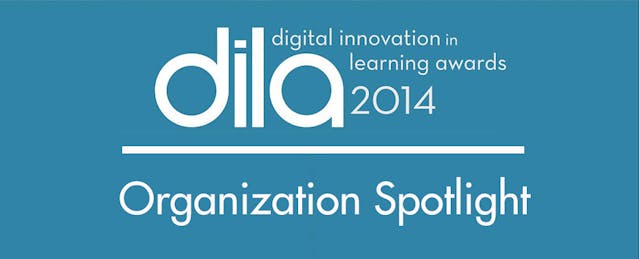The education technology marketplace is a complex one, and many entrepreneurs and developers are asking themselves what practices and design principles will make for a quality product that users love and has real impact.
EdSurge and Digital Promise designed the Digital Innovation in Learning Awards precisely to suss out excellent examples of five core principles of successful education technology organizations. Entrepreneurs and developers, consider these suggestions from some of the best products and programs out there:
1. Open up the design and implementation process. Products and programs effectively address a real user need when many different stakeholders have input into its design and implementation.
“Better Together” award winner Common Sense Media depended on the input and collaboration of the Los Angeles Unified School District, from administrators and teachers to parents and students, to make their first-ever Digital Citizenship Week a success. The Week’s organizing body included LAUSD students, parents, teachers, and community members.
2. Remember that users must understand and feel comfortable with privacy policies. Privacy is an important topic in a technology-rich world, and especially in education technology. Policies for user privacy protection should be clear, detailed, and user-friendly.
“Crystal Clear” award winner Clever focuses its efforts on clear privacy policies written in understandable terms so that districts are aware that they and their schools always retain ownership of their own data and data is never shared, except when the school gives permission.
3. Ensure there is an effective way to gather user feedback, and use that feedback to drive iterative design. The best education technology companies address specific user-identified needs, consider user feedback essential, and prioritize customer service to attend to reported problems.
“Listen & Learn” award winner Accelerate Learning: STEMscopes has not just one, but four mechanisms for soliciting and integrating product feedback from teachers and administrators. In addition to working with science teachers to write all lesson curricula, Accelerate pilots all curricula with teachers in the classroom and receives an average 250 feedback items per week through an embedded website “feedback button.”
4. Manage, repackage and deliver data to educators and administrators in a manner that is understandable and actionable. Data that is nebulous and overwhelming detracts from its helpfulness in the classroom, yet data that tracks student performance or gaps in understanding can be helpful when shared in a way that educators can use, without confusion or excessive time.
One of the two “Mindful Data” winners, LightSail, achieves this through direct, in-text assessments that take place while students read digital books. LightSail focuses on determining students’ Lexile levels, and gives teachers real-time feedback on a teacher dashboard, complete with student updates and guidance for how best to support them.
Zaption, the second “Mindful Data” winner, tackles the art of using video in the classroom. After users build interactive video lessons on Zaption's platform, they can track learner activity and engagement as learners watch the video. Teachers can track viewing time, performance on multiple choice questions embedded in the videos, and answers to free-response questions.
5. Last but certainly not least, integrate relevant academic research into the development and revision of a product or initiative.
“Research @ Work” winner The Attainment Company has incorporated a range of research into its line of educational products intended to serve students struggling with disabilities. Along with the University of North Carolina at Charlotte and a dozen other partners, Attainment has developed products targeting disabled students in STEM, self-determination, and phonics through evidence-based practice.
These companies represent just a fraction of the amazing products and initiatives seen amongst the 1500+ DILA organization applicants and nominees. What other best practices do you value in edtech companies, nonprofits, and startups?


